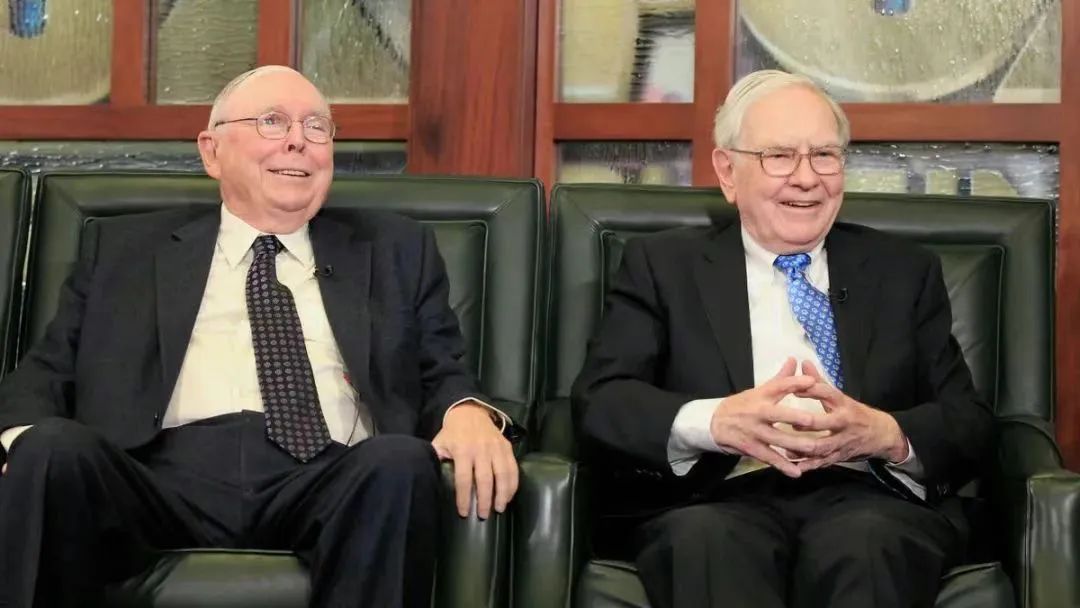每年5月份,初夏,在美国小镇奥马哈,沃伦巴菲特和查理芒格都会举行长达6小时的伯克希尔哈撒韦公司年会。年会上有个传统环节,由股东现场提问,巴菲特和芒格现场回答。这个环节占用了年会绝大部分时间,里面很多问题都非常有趣,包含了看待事物的方式、人生哲理、投资方法。
目前能搜罗到的伯克希尔年会问答实录,从1994到2023合共三十年,当时读的是中文翻译的版本。读完之后想再读,但我想既然再读为啥不直接读英文原版呢,于是找到了英文原版重读,同时这次做了一些精彩的摘录。当然了,其他部分也很精彩,只是我对这些摘录更有共鸣,你去读有共鸣的部分肯定是不一样的,所以推荐大家去读全文。这份问答录适合想在生活中和工作中获得长久的独立、充实、理性、愉悦的人。
人生中能找到一个品行卓越的老师,并且他还可以以某种方式深入地影响你,是一辈子最幸运的事情。沃伦巴菲特找到了本格雷厄姆,查理芒格找到了本杰明富兰克林。
以下以摘录的形式,把某个问题的原文原封不动摘录下来,然后某些段落后面加上我自己的感想。
————
“Why Berkshire doesn’t sell businesses”
WARREN BUFFETT: Zone 4?
AUDIENCE MEMBER: Yes, Jeff Peskin (PH) from New York City.
And I was — I have a question on the annual report where you say that, obviously, going forward, due to the size of Berkshire, the returns going forward probably won’t match the returns of the past.
And then you go on to state that one thing that may hinder that is the fact that you don’t really like to sell companies that you own.
And I would just like to know what the reasoning is in that, if you’ve got a company or investment that you don’t think is going to do as well as where you can put the money going forward. What really the reasoning is for holding on and not redeploying the money elsewhere?
WARREN BUFFETT: Yeah. I’ll just correct you just slightly. A, I didn’t say we’d probably do worse than the past. I said we will do worse than the past. I mean, there’s no way we can match percentage numbers of the past.
有人问,你之前说过未来伯克希尔的收益可能会比之前的低。巴菲特说,更正一下,我说的是未来的收益一定会比之前的低。巴菲特不想让人有不切实际的期望,这是为了避免未来的失望。把最真实的一面展现出来,就能吸引那些可以接受你这一面的人作为股东,这些股东才是真正能和自己同心协力的人。他打过一个很好的比喻,你开一家法国餐厅那么就可以一直吸引喜欢吃法餐的顾客光临,而如果你做了一段法餐之后,忽然开始做美餐又做泰餐,那么喜欢吃法餐的来了就会感到很失望了。所以,提供一致的预期就是非常重要的事情。如果吸引了一些抱有不切实际期望的人与自己为伍,在未来的某个时间一定会因为失望而产生分歧,大家都会不开心,甚至是争吵和指责。投资是巴菲特一生的乐趣所在,他肯定不希望因为这个而坏了兴致。
That, you know, we would — in a period that would not take that long, we would — assuming we paid out nothing — we would gobble up the whole GDP, which is something we may think about, occasionally, but — (laughter) — we don’t really expect to accomplish. The —
But — and the second point, that relates to size. That does not relate to our unwillingness to sell businesses, because that unwillingness has existed for decades. But the size has not existed for decades.
The size is — you know, doubling 12 billion or so is harder than doubling 1 billion-2, which was harder than doubling 120 million. I mean, there’s no question about that.
So, eventually — well, already it will be a drag on performance. It doesn’t mean that the performance will be terrible, but it does mean that 23 percent is an historical figure. It has no predictive value.
The unwillingness to sell businesses, like I say, goes back a long way. That is not what — that —
If that hurts performance, it’s peanuts. That’s simply a fact — a function of the attitude Charlie and I have, is that if we want to live our lives, we find it a rarity when we find people in the business that we want to associate with. When we do find that, we enjoy it.
We don’t see any reason to make an extra half a percent a year or 1 percent a year — don’t try us on higher numbers. But the — (laughter) — we don’t see a reason to go around ending friendships we have with people, or contact, or relationships. It just doesn’t make any sense to us. It —
We don’t want to get committed to that sort of activity. We know we wouldn’t do it if we were a private company.
伯克希尔一路以来买过非常多的企业,超过几百家,其中公开上市的公司只是凤毛麟角也就几十家,更多的是非公开上市的私人公司。而这些私人公司来找到巴菲特的时候,伯克希尔出的价格往往会比很多市面上其它并购基金出的价格低,但这些私人公司最终仍然会选择卖给伯克希尔,这是因为看重伯克希尔的运营方式和巴菲特的口碑。伯克希尔购买之后会让私人公司的创始人们按照他们的方式继续运营自己的公司,不会干涉日常运营,甚至连运营计划都不用提供。巴菲特说,就好像伯克希尔从没有买过这家公司,而创始人们从没有卖过公司一样。实际上,这些找到巴菲特的私人公司大部分都是因为企业遇到传承或者家族内部问题时,想寻求资本化而来找到巴菲特的。讲简单些,也就是有家族里有一部分人想把股份变现,而另一部分人想留着股份(往往想留着股份的人也是创始人和实际运营企业的人),那么创始人为想变现的那部分股份寻找一个合适的买家就变得非常重要了(这部分股份的最终买家如果未来不认可创始人的运营方式可能会导致公司分裂)。巴菲特就是这样一个完美的买家,但这也意味着在未来如果巴菲特想要卖掉这些股份,这也是一个隐含的责任,当时这些私人公司是带着对巴菲特的充分信任而把股份卖给他的,市场上要找到另外这样一位买家是难上加难。信誉是最重要的资产,需要花二十年建立,而只需五分钟就可以毁掉。说白了,有很多的事情比多赚那么一丢丢更加重要。
Now, in Berkshire, we feel we’ve enunciated that position. We want to get that across to everybody who might join with us because we don’t want them to expect us to do it.
We want them to expect us to work hard to get a decent result, and to make sure that the shareholders get the same result we get, and all of that sort of thing.
But we don’t want to enter into any implicit contract with our fellow shareholders that will cause us to have to behave in a way that we really don’t want to behave.
If that’s the price of making more money, it’s a price we don’t want to pay.
There’s other things we forgo also, but that is the one that people might disagree with us on. So, we want to be very sure that everybody understands that, going in. That’s part of what you buy here.
And it may — I don’t think it’ll hurt performance that much anyway. But to the extent that it does, it’s a limitation you get with us.
Charlie? (Applause)
CHARLIE MUNGER: I don’t think there’s any way to measure it, exactly. But my guess is that, if you could appraise something you might call the character of the people that are running the operating businesses in Berkshire, many of whom helped create the businesses in the first place, and are leading citizens in their community, like the Helzbergs —
I don’t think there’s any other corporation in America that has done as well as we have, if you measure the human quality of the people who are in it.
Now, you can say we’ve collected high-grade people because we sure as hell couldn’t create them. But one way or another, this is a remarkable system. And why would we tinker with it?
WARREN BUFFETT: If you want to — (applause) — attract high-grade people, you probably ought to try and behave pretty well yourself.
I mean it’s just — besides, it wouldn’t be any fun doing the other. I mean, it — I was in that position, a little bit, when I ran the partnership back in the ’60s.
And I really — you know, people were coming into partnership with me. And my job was to turn out the best return that we could. And I found that if I got into a business, that presented certain alternatives that I didn’t like. So, Berkshire’s much more satisfactory in that respect.

精彩评论